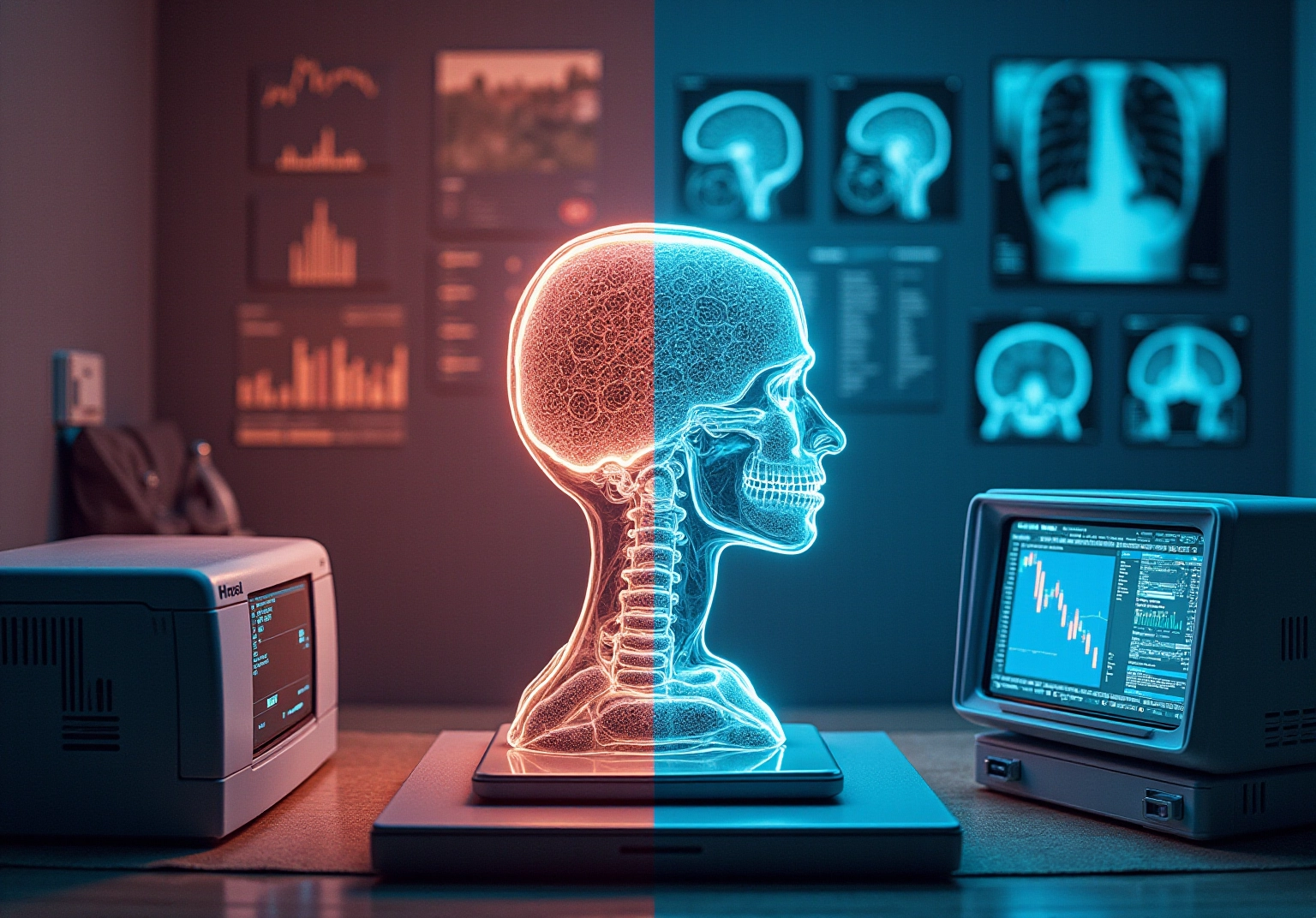
This article examines the transformative role of AI in medicine, emphasizing its capacity to significantly enhance patient care through advancements in diagnostics, personalized treatment, and operational efficiency. It presents compelling applications, such as diagnostic imaging and predictive analytics, which illustrate the potential of AI to revolutionize healthcare delivery. However, it also confronts critical challenges, including data privacy and algorithmic bias, thereby underscoring the imperative for ethical considerations in the integration of AI into healthcare practices.
The integration of artificial intelligence in medicine transcends mere technological trend; it signifies a seismic shift in healthcare delivery. As algorithms and advanced software begin to replicate human cognitive functions, the potential for enhanced diagnostics, personalized treatment, and streamlined operations becomes increasingly apparent.
However, amidst the promise of improved patient care lies a complex web of challenges, including ethical dilemmas and data privacy concerns.
How can healthcare systems harness the transformative power of AI while ensuring that patient safety and equity remain at the forefront? This question not only highlights the urgency of the issue but also invites stakeholders to engage in a critical dialogue about the future of healthcare.
The uses of AI in medicine represent a groundbreaking advancement, utilizing algorithms and software to replicate human cognitive functions in the analysis of complex medical data. This technology encompasses machine learning, natural language processing, and robotics, which are increasingly integrated into medical systems to enhance diagnostics, treatment planning, and patient management. By leveraging AI, healthcare providers can significantly improve service quality while simultaneously reducing costs and alleviating administrative burdens.
For instance, AI algorithms streamline workflows, with tools like Inferscience’s HCC Assistant automating clinical information collection and providing coding recommendations at the point of care. This innovation enhances coding precision and maximizes funding opportunities from Medicare Advantage beneficiaries, effectively addressing compliance issues and overlooked diagnoses. Moreover, Inferscience’s HCC coding tool specifically improves risk adjustment workflows by seamlessly incorporating individual information, thereby eliminating information silos that often lead to inaccuracies.
Looking ahead to 2025, the medical AI market is projected to reach $258.5 billion, underscoring the growing recognition of AI’s transformative potential in patient care. Healthcare professionals are increasingly optimistic about AI’s role, with 59% believing it offers significant cost-effective services. However, concerns persist regarding data privacy and the accuracy of AI-driven diagnoses, with 54% of U.S. adults expressing apprehension about AI’s reliability in medical care.
In conclusion, the uses of AI in medicine are extensive, ranging from enhancing diagnostic accuracy to personalizing treatment recommendations. The integration of AI technologies, particularly through Inferscience’s advanced HCC coding solutions, is crucial for improving operational efficiency and patient outcomes, ultimately reshaping the future of medical delivery.
The evolution of artificial intelligence in healthcare dates back to the 1950s, when initial research concentrated on algorithms designed to replicate human decision-making. A pivotal moment unfolded in the 1970s with the advent of INTERNIST-1, a groundbreaking program aimed at aiding disease diagnosis. This early application laid the groundwork for subsequent advancements.
As computing power and information accessibility surged, AI’s capabilities expanded dramatically. By the 2000s, machine learning techniques emerged as dominant forces, facilitating more sophisticated data analysis and application.
Today, the uses of AI in medicine are indispensable across various medical fields, including:
This signifies a transformative shift in service delivery. The AI sector in medical services is projected to grow to nearly $150 billion by 2029, illustrating the increasing reliance on the uses of AI in medicine to enhance outcomes for individuals and improve operational efficiency. Furthermore, it is anticipated that 90% of hospitals will adopt AI by 2025, highlighting the swift integration of AI into healthcare practices.
This trajectory underscores not only the historical milestones but also the ongoing development and immense potential in the uses of AI in medicine to revolutionize healthcare.

The uses of AI in medicine have numerous applications in medical practice, significantly enhancing care and operational efficiency. Key areas include:
The integration of AI in these areas demonstrates the uses of AI in medicine by enhancing diagnostic capabilities and streamlining workflows, ultimately benefiting patient care and operational efficiency. Well-managed databases ensure that medical professionals can access precise and timely information, further supporting the effectiveness of AI applications. As mentioned by Aaron Waters, “Artificial intelligence (AI) is rapidly expanding its footprint in the medical field, transforming everything from clinical diagnostics to administrative workflows.
AI in healthcare presents substantial advantages, yet it also introduces significant challenges and ethical dilemmas that must be addressed to maximize its potential. These challenges include:
Addressing these challenges is crucial for harnessing the full potential of AI, ensuring that its integration into healthcare promotes ethical and equitable patient care.

The transformative potential of artificial intelligence in medicine is reshaping patient care and operational efficiency across healthcare systems. By harnessing advanced algorithms and machine learning, AI is not only enhancing diagnostic accuracy but also streamlining administrative processes, ultimately leading to improved patient outcomes and reduced costs.
Throughout the article, key applications of AI in medical practice have been explored, including:
Each of these areas demonstrates how AI technologies are making significant strides in enhancing healthcare delivery, while also addressing the challenges of data privacy, bias, and accountability. As the medical AI market continues to expand, with projections indicating a substantial increase in adoption by 2025, it is evident that the integration of AI is becoming an indispensable aspect of modern healthcare.
The journey ahead involves not only leveraging the benefits of AI but also navigating the ethical considerations and challenges it presents. Stakeholders must prioritize robust data protection measures, ensure fairness in AI algorithms, and foster a culture of innovation within healthcare settings. Embracing these advancements responsibly will be crucial in maximizing the positive impact of AI on patient care, ultimately leading to a more efficient, equitable, and effective healthcare system.